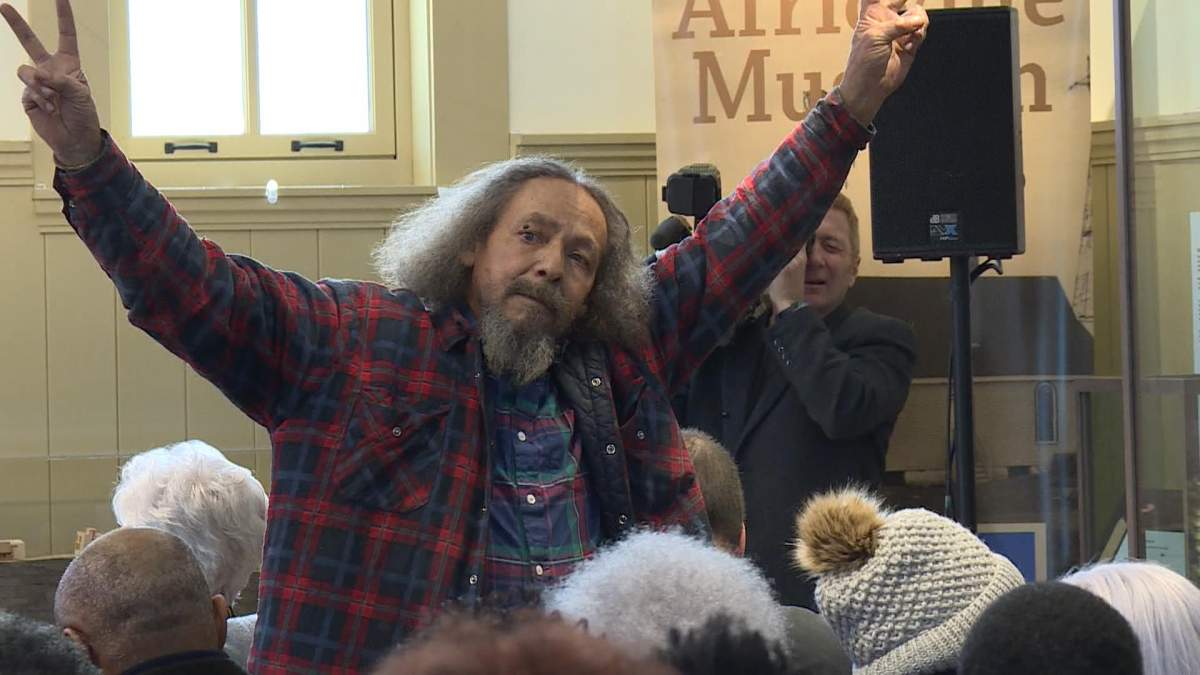As Nova Scotians focused on the history of Africville, the Nova Scotia government revealed that a historic piece of the African Nova Scotian community will return to the land where it once stood.

Monday marked Nova Scotia’s Heritage Day and the 2020-edition of the event shone a light on the historic Black community that was razed by the City of Halifax in the 1960s under the premise of urban renewal.
The province announced at a dedication in the Africville Museum to mark the occasion, that a bell which once hung in the heart of the community — the Seaview United Baptist Church — will soon be placed on the land outside the Africville Museum.
Africville was founded along the shores of the Bedford Basin during the mid-18th century. But when the City of Halifax demolished the community it forced the approximately 400 residents to relocate with little compensation for their homes and land.

READ MORE: Africville’s first Easter church service in 50 years a ‘marvelous feeling’
The community and the residents of Africville have since played an important role in Nova Scotia’s history, as well as the ongoing acknowledgment of racial discrimination against African Nova Scotians by municipal and provincial governments.
Eddie Carvery was in attendance at the dedication on Monday. The former Africville residence spent five decades living in a small trailer near the rebuilt church to protest the eviction of his community.
He told media that he thought this day “would never come.”
It was a statement echoed by former Africville residents Irvine Carvery and Linda Mantley, who spent the day reflecting on all of the “people they’ve lost” during the many decades that have passed since their community was demolished.

“Heritage Day is a time to commemorate the remarkable individuals and places that have contributed to our shared Nova Scotian history,” said Leo Glavine, minister of communities, culture and heritage.

Get daily National news
“It is our responsibility to share the story of Africville and the significant impact this community has made on our province.”
Bernice Byers Arsenault, a former resident of Africville, told Global News Morning on Monday that the dedication scheduled for later in the day “helps keep our memory alive.”
Arsenault described the community as a tight-knit place where no doors were ever locked and everyone felt free to gather in the Seaview United Baptist Church.
“Everybody were friends and neighbors and, you know, we took care of each other,” she said.
Tony Ince, minister of African Nova Scotian affairs said at the dedication on Monday that it was not a day of celebration but one of solemn remembrance.
In 2010, then-Halifax mayor Peter Kelly apologized for the destruction of Africville.
Juanita Peters, executive director of the Africville Museum, described the story of the community is “a lesson for everybody” on what not to do to communities.
READ MORE: Halifax to establish guiding framework for the future of Africville Park
The Seaview United Baptist Church bell has been held at a church in Beechville, N.S., for the past 50 years.
The province said the bell is expected to be in place by this summer and will be joined by a monument explaining the significance of the object.
—With files from The Canadian Press











Comments
Want to discuss? Please read our Commenting Policy first.